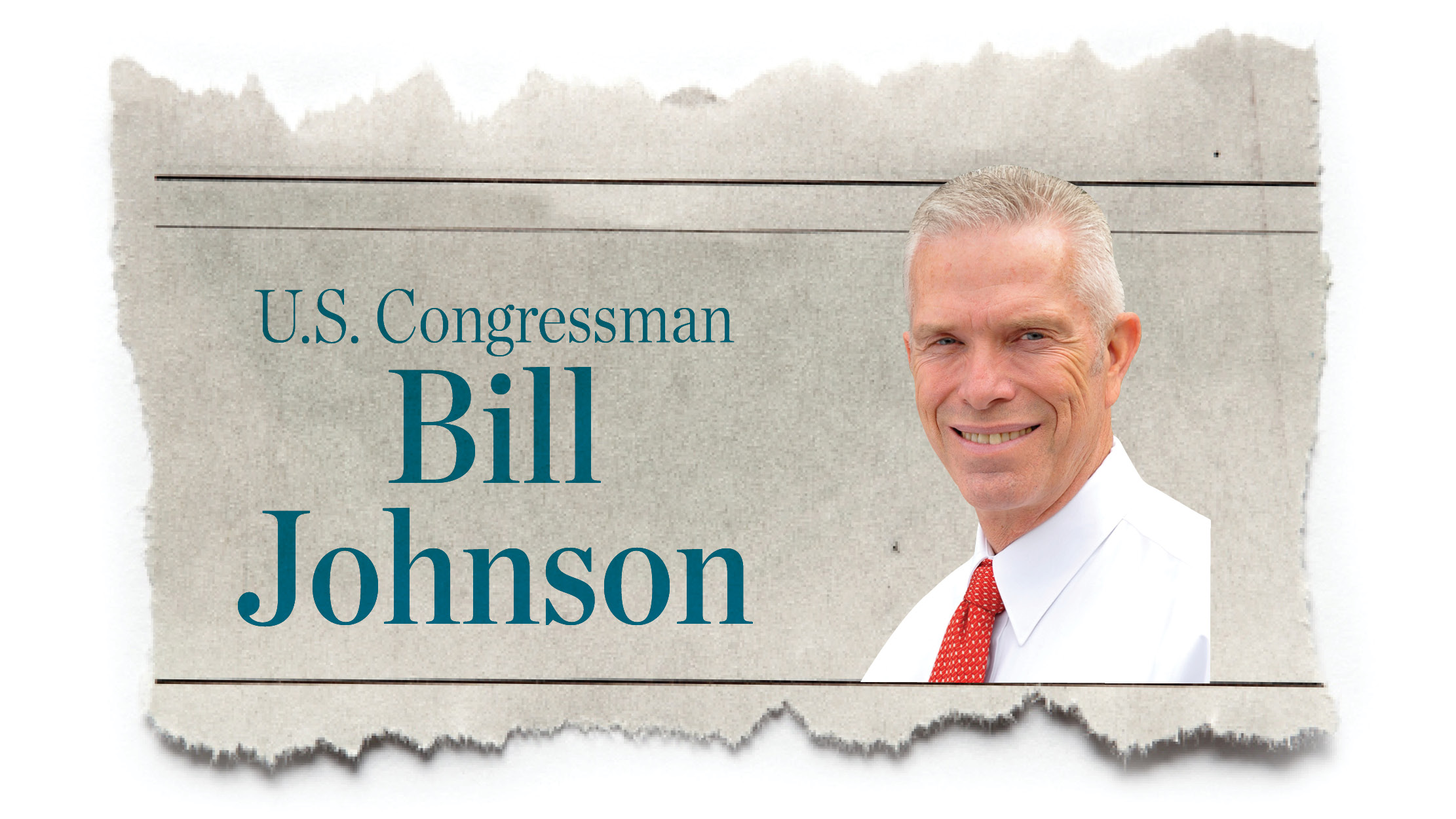U.S. Rep. Bill Johnson: Student debt plan is unfair, irresponsible
Published 12:00 am Saturday, March 20, 2021
Many Democrats in Washington are calling on President Joe Biden to forgive student loans — as much as $50,000 per loan.
The president himself wants $10,000 per loan. Like many policies the left is pushing these days, it sounds good. But, on closer inspection, it’s both fundamentally unfair and deeply irresponsible.
The burden of debt is heavy…I’ve been there myself. And quality education should be available to everyone, and it is critical to financial security…it should be affordable. But the cost of college is skyrocketing.
It’s hard to name a product or service that has increased in cost as rapidly as higher education. According to the National Center for Education Statistics, in 1980, it cost $1,856 to attend a public college and $10,227 to attend a private school, after adjusting for inflation.
Today, it costs an average of $9,403 and $34,059, respectively – that’s a 1,200 percent increase. Compare that to the Consumer Price Index (CPI), which has risen just 236 percent for all items. And that’s just tuition and fees — books, room and board, and other expenses not included. So I understand that costs for a college education are out of control.
But, forgiving current student loan debt wouldn’t do a thing to contain costs…it’s both irresponsible and fundamentally unfair.
Consider this: if implemented, nearly 80 percent of the dollar value of loan forgiveness will go to those who borrowed money to pursue expensive graduate degrees, like law or medicine, and who are often among America’s highest income earners upon graduation. Forgiving these loans would primarily bail out the wealthy and comfortable – that’s Robin Hood in reverse. Why should working men and women who chose not to go to college, or who did and repaid their loans, be forced by the federal government to repay the loans of high-income earners?
Lost in this debate is the fact that there are already reasonable ways to repay student loan debt. Income-based programs, already in existence, are fairer to everyone. I also support legislation that would enable students from low-income households to use Pell Grant money to pay for high quality, short-term skills training programs that lead to meaningful careers.
Currently, their only option is to use Pell Grant funds for traditional college classes, which may not be the best fit for them. Besides, America needs qualified workers in the skilled trades and other similar type jobs — and they often provide good salaries and benefits.
College is a great choice for many, but some might want to go a different route — and that’s perfectly fine. The traditional stigma attached to attending a trade or technical school to learn an employable skill, rather than a four-year college degree, is fading…and that is a good thing.
If the government starts cancelling student loan debt, I fear we will reverse the progress we’ve made in this area, and more people who aren’t sure about college will decide to take the chance, knowing that someone else will pay the bill.
Ultimately, student loan debt is going to be repaid by someone, and the government should not transfer the financial burden of a student’s decision to take out college loans onto American taxpayers who had no input on that decision. The money must come from somewhere, and that somewhere is from you, the taxpayer.
The millions of Americans who repaid their student loans, borrowed responsibly, chose not to go to college because of the expense or joined the military to help earn a degree will be on the hook to pay for this massive bailout.
Bill Johnson is a Republican and serves as U.S. representative for Ohio’s 6th District, which covers Lawrence County.






